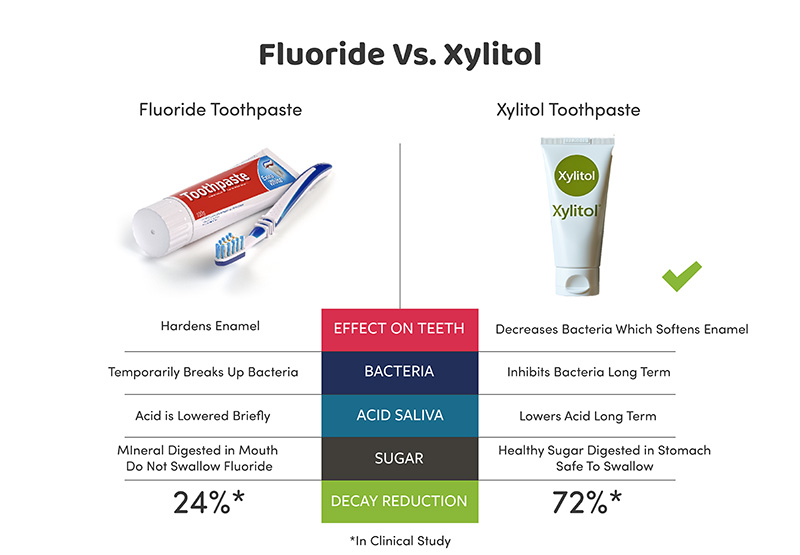
Fluoride vs. Xylitol
Americans overwhelmingly choose brushing their teeth as their preferred method of maintaining oral health. Unfortunately, barely half the American population visits a dentist regularly. The two most likely causes of this are: the expense of dental care, and lack of education about its importance. Our Foundation addresses both causes.
Taking the above into consideration, the effectiveness of brushing determines the rate of infection that causes cavities.
Fluoride
The mineral fluoride is added to most municipal drinking water and to almost all toothpaste. This is now a controversial, and perhaps archaic, practice. The current literature contains plentiful warnings about the prospective harms caused by fluoride. Certain attributes of fluoride are known:
•Fluoride hardens enamel, which makes teeth less vulnerable to decay;
•Fluoride does not prevent the spread of bacteria in the mouth; and,
•Fluoride should not be swallowed as it is not good for the digestive system.
Xylitol
Xylitol is a natural substance derived from birch trees.
•Xylitol has been safely in use by Scandinavian national health services for over 50 years;
•Xylitol does not support the growth of bacteria in the mouth, specifically the bacterium Streptococcus mutans which causes most cavities and has general health consequences as well; and,
•Xylitol is FDA approved as a food additive and can be safely swallowed, an attribute especially important for children and special needs individuals.
In clinical testing at a university medical center, Xylitol toothpaste reduced cavities 3 times more effectively than toothpastes containing the mineral fluoride–72% reduction for Xylitol, 24% reduction for fluoride. This study is available from the Foundation upon request.
The Foundation’s objectives are to educate families to “brush your teeth every night” and to place Xylitol toothpaste, onto the toothbrushes of those families who do not have well-established brushing routines and who are least likely to visit a dentist regularly. This population is generally described as economically disadvantaged. Very essential target groups also include families with a special needs member, discussed under the Autism Spectrum and Down Syndrome tab on this website.
